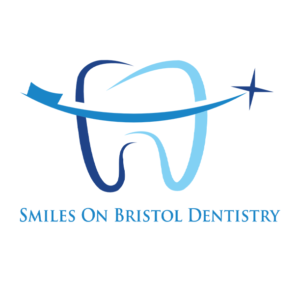The Santa Ana dentists at Smiles on Bristol dentistry warn that upwards of 15 percent of the population suffer from a condition called TMD. TMD stands for Temporomandibular Disorder and affects the temporomandibular joints (TMJ.) While a large amount of the population experiences TMD at some point in their life, the good news is that that for most people, the condition is usually temporary and mild. Dentists such as Dr. Danial Kalantari and Dr. Arcila of Smiles on Bristol Dentistry are specially trained to recognize TMD and can diagnose whether a patient’s symptoms indicate a mild condition or whether it indicates something more severe.
The temporomandibular joints cover a large number of tendons, muscles, ligaments, discs, and bones. TMJ refers to where the end of the jaw bone connects to the main part of the skull just in front of the ear. The jaw is connected to the skull with ligaments which allow it to move up and down and side to side. The variety of motions and amount of use that this area has contributes to how common TMD is. Too strenuous of chewing or overly extending the jaw can strain the ligaments in the area and create pain. Additionally, the jaw bone slides along the bones of the skull with the cushioning of condyles. When the jaw pushes harder than usual into these condyles, pain will result.
There are three main categories of TMD. The first is Myofascial pain that refers to pain stemming from the muscles in the TMJ. The second type is Internal Derangement of the joint which involves some part of the joint moving out of place. This can cover injuries to the condyles and dislocating the jaw, among others. The last category is Arthritic pain that results from inflammatory disorders that affect the joint.
The TMJ can be damaged through physical trauma such as falling or receiving a punch. Additionally, women of child-bearing ages are twice as likely as men to experience TMD, leading researchers to believe that female hormones may have some impact. Many TMD disorders do not have clear causes. Only experienced dentists like the Santa Ana dentists at Smiles on Bristol Dentistry can give the most accurate diagnoses for patients suffering from TMD.
To determine the cause of TMD, dentists will ask patients for a list of symptoms, do a physical examination, and review the patient’s medical history. After that they may also choose to do an x-ray examination to get a better understanding of how the bones are lining up, including the teeth.
From there the dentists will determine a course of action depending on whether there is a clear cause or not. Permanent, intrusive procedures should be avoided unless absolutely necessary. Skilled dentists will start with conservative treatment options to try to find a successful fix. These options can include having patients eat only soft foods for a while to give the jaw a chance to rest, applying ice packs to reduce possible inflammation, and avoiding excessive movement of the jaw.
Some TMD conditions such as clenching the jaw and grinding of the teeth are thought to be caused by stress. For these, dentists will recommend patients learn to recognize when they are doing these actions and to practice relaxation techniques. Most dentists will recommend night guards for the teeth of patients who grind their teeth in the night and cannot consciously stop the grinding. Dentists will still recommend stress relief techniques to those patients to help reduce the frequency of grinding. Like other parts of the body that get over taxed, light stretching and gentle massage can help soothe the TMJ area. Some physical therapists specialize in TMJ conditions and can help patients with specific techniques to ease the discomfort.
Dentists will also usually recommend over-the-counter pain medications to ease any short-term pain. NSAID pain relievers such as ibuprofen can be especially helpful because they have anti-inflammatory properties. While in most cases unnecessary, muscle relaxers and stronger dosage pain relievers may be prescribed for more serious conditions.
Besides bite guards, prescribers often recommend stabilization splints which are pieces of plastic that fit over the teeth and should help to keep the jaw in proper place. Dentists that specialize in TMD, such as the dentists at Smiles on Bristol Dentistry in Santa Ana, CA, can outfit patients with specially made splints, customized to each patient’s mouth for best effect. Ill-fitting, generic splints can cause more pain as they may cause misalignment of the jaw.
Due to the lack of detailed understanding of all the causes of TMD, invasive and permanent treatments should only be used as last resorts. When performed without a clear understand of the problem, they can actually exacerbate the issues or cause new problems. These procedures include surgery and implants. For both procedures, patients should discuss the reasons and potential procedure thoroughly with their doctor. The dentists at Smiles on Bristol recommend patients receive a second opinion before any potentially permanent procedure.


